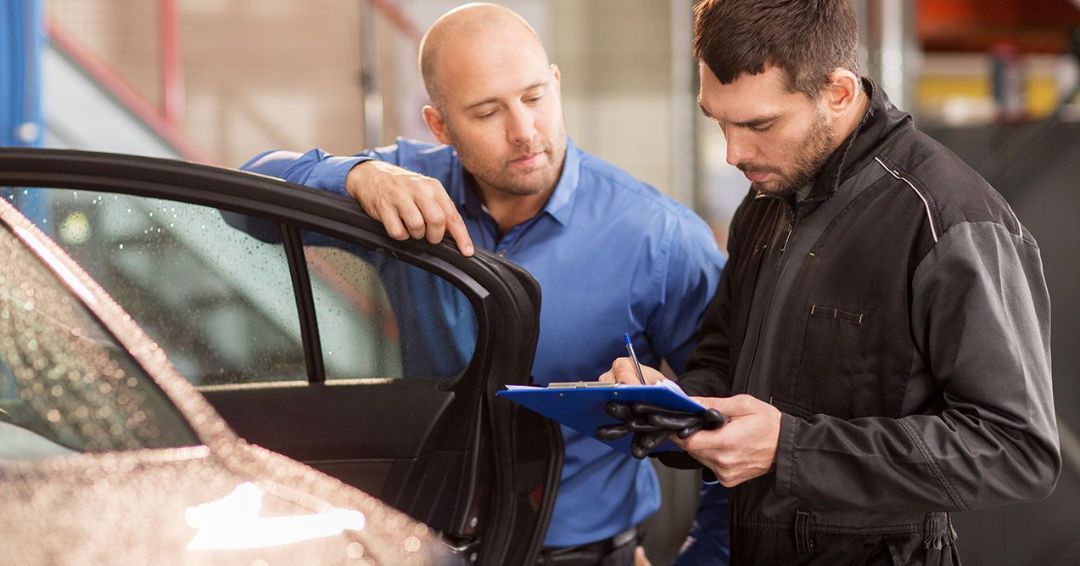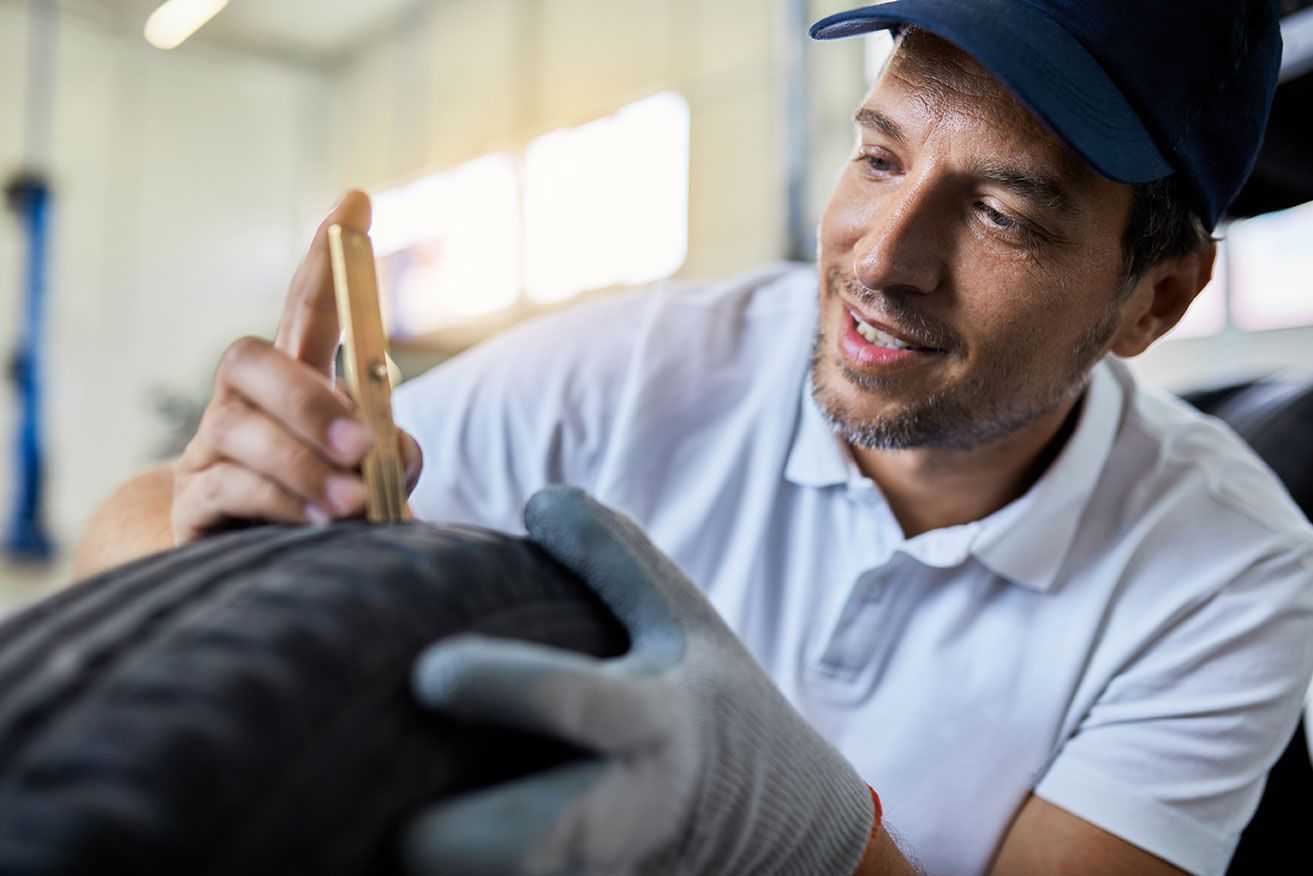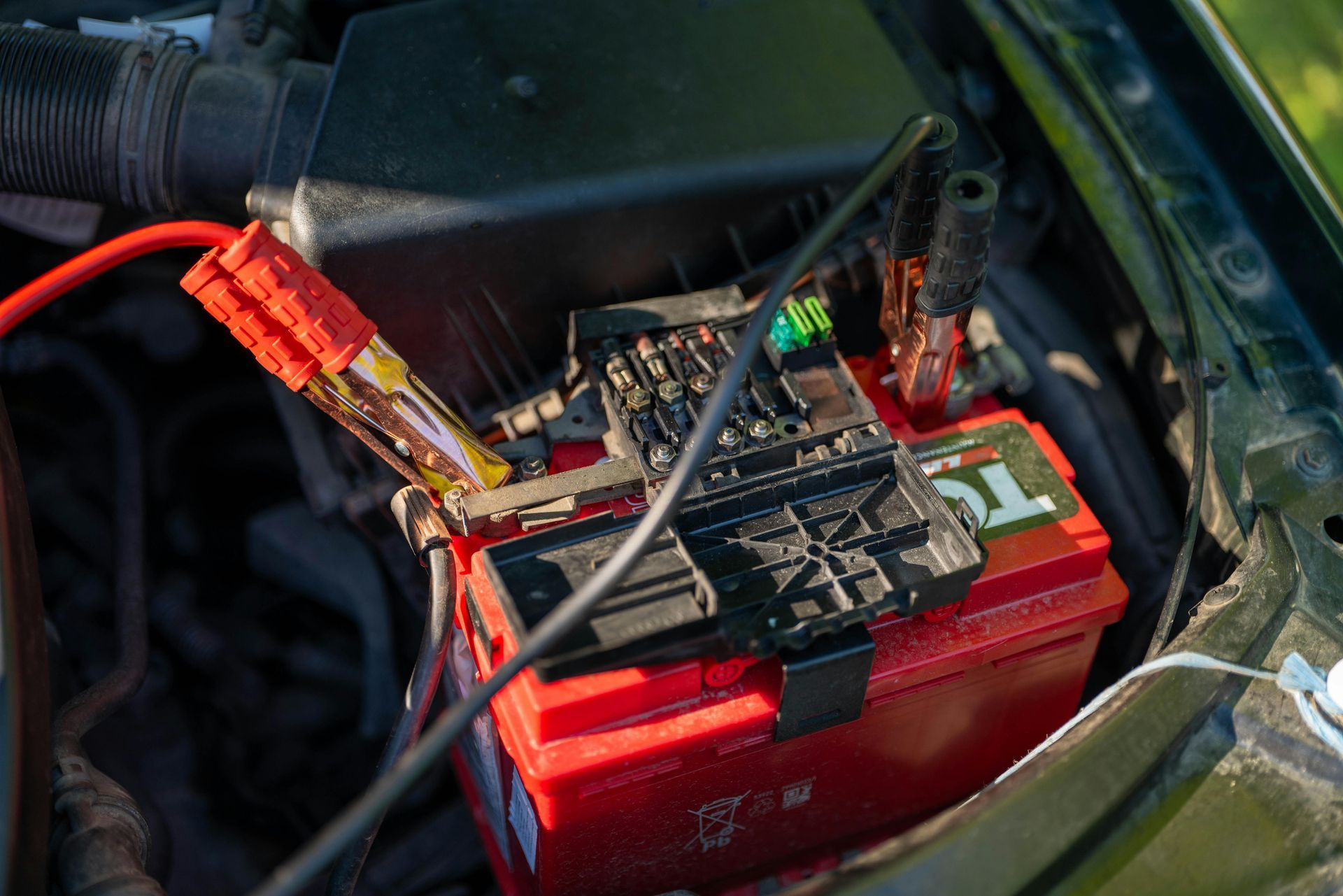What Is Checked During an NC Annual Car Inspection?
Auto Shops Located in: Chapel Hill, Durham, Taleigh, Apex, and Cary North Carolina

If you are due for your annual vehicle inspection, you may be thinking about your car and trying to decide if it has any issues that will prevent it from passing. Put your mind at ease with this comprehensive vehicle inspection checklist from the local mechanics at Chapel Hill Tire.
Car Inspection Check 1: Headlights
Are headlights checked during an NC car inspection?
Properly functioning headlights are necessary for maintaining visibility at night and during inclement weather, as well as helping other drivers see you. Both of your headlights must be functioning and effective to help you stay safe and pass your inspection. Common issues include:
- Burnt-out bulbs
- Dim headlights
- Discolored headlight lenses
- Cracked headlights lenses
These can often be repaired with headlight restoration services or replacement bulbs.
Car Inspection Check 2: Tires
Are tires checked during an NC car inspection?
Over time, tire tread becomes worn and loses its ability to provide necessary traction on the road. Worn tire tread can result in handling and braking troubles, which worsen during inclement weather. Tire health is necessary for passing both safety and emissions inspections. Keep an eye on your wear indicator bars or manually inspect your tire tread to ensure that it is at least 2/32 of an inch tall.
Beyond just the tread depth, you can fail your inspection if your tires have any structural tire issues, including cuts that expose the cords, visible bumps, knots, or bulges. These can be caused by old tire age, extended wear and tear, or specific wheel problems (such as bent rims). If any of these issues are present, you will need new tires to pass your inspection.
Car Inspection Check 3: Turn Signals
Are turn signals checked during an NC car inspection?
Your turn signals (sometimes referred to as “directional signals” or “indicators” during inspections) are necessary for communicating your upcoming actions with other drivers on the road. Your turn signals must be fully functional and intact to pass your car inspection. This inspection process checks the turn signal lights on the front and back of your vehicle. Common issues that lead to failure include burnt-out or dim bulbs, which are easily restored with turn signal bulb replacements.
Time for your NC inspection? Schedule a safety and emissions inspection at Chapel Hill Tire today.
Car Inspection Check 4: Brakes
Are brakes checked during an NC car inspection?
The ability to properly slow and stop your vehicle is key to staying safe on the road. Both your foot brake and your parking brake are checked during an NC inspection, and they both need to work properly for you to pass. One of the most common brake problems that can cause you to fail your inspection is worn brake pads. This issue can easily be repaired with proper brake service.
Car Inspection Check 5: Exhaust System
What exhaust elements are checked during an NC car inspection?
While NC emissions inspections are relatively new, exhaust system checks have been around for years as a part of the annual inspection. This car inspection step checks for removed, broken, tampered, or disconnected exhaust system parts and emissions control devices. Depending on your vehicle, this can include your catalytic converter, muffler, exhaust pipe, air pump system, EGR valve, PCV valve, and oxygen sensor, among others.
It used to be common for drivers to tamper with these devices in an attempt to improve vehicle speed and performance. This practice has become much less popular over the years, so this check will likely only cause you to fail your car inspection if an element of your exhaust system is failing. Unfortunately, it is also common for catalytic converters to be stolen and sold for the precious metals they contain. In these cases, you will need to have your catalytic converter replaced before passing your inspection.
However, if you do choose to tamper with your emissions control devices, it could earn you a $250 fine in addition to a car inspection failure.
Car Inspection Check 6: Brake Lights and Other Accessory Lighting
Which lights are checked during an NC car inspection?
Listed as “accessory lighting” by the DMV, this component of your car inspection includes checking your brake lights, tail lights, license plate lights, reverse lights, and any other lights that may need servicing. Much like your headlights and turn signals, the most common issue here is dim or burnt-out bulbs, which can be fixed with simple bulb replacements.
Car Inspection Check 7: Windshield Wipers
Are windshield wipers checked during an NC car inspection?
To help with visibility during inclement weather, your windshield wipers need to be working properly. The blades also need to be intact and functional without any noticeable damage to pass your inspection. The most common issue here is broken windshield wiper blades, which can be quickly and affordably replaced.
Car Inspection Check 8: Windshield Glass
Will a cracked windshield cause me to fail my NC car inspection?
In some (but not all) cases, a cracked windshield can lead to a failed inspection in North Carolina. This is often the case if the cracked windshield obstructs the driver’s vision in a way that impacts the car’s safety. It may also cause a failed inspection if the damage impacts the proper functioning of any other vehicle safety device, such as the windshield wipers or rearview mirror mounting.
However, most windshields will pass inspection without trouble—even with knicks and cracks. Why? Windshields are made of industrial-style plexiglass. Think of a plexiglass phone screen protector. The base coat keeps the glass cohesive and prevents any inward obstruction. Contrary to popular belief, a crack in the windshield does not present the risk of glass falling inwards toward the driver, and it will still keep you safe in a car accident.
Car Inspection Check 9: Rearview Mirrors
Will a broken rearview or side mirror cause me to fail my NC car inspection?
North Carolina car inspections check both your rearview mirror and side mirrors. These mirrors must be properly in place, mounted securely, effective, easy to clean (no sharp cracks), and simple to adjust.
Car Inspection Check 10: Horn
Is a car horn checked in an NC car inspection?
To ensure that you can communicate with other drivers on the road, your horn is checked during your annual car inspections. It must be able to be heard 200 feet ahead, and it cannot have any harsh or unusually loud sounds. The horn must also be securely mounted and safely wired.
Car Inspection Check 11: Steering System
Is the steering wheel checked in an NC car inspection?
As you might have guessed, proper steering is essential to vehicle safety. One of the first checks here involves “free play” with your steering wheel, which is the term used to describe any extra motion needed from your steering wheel before it begins to turn your wheels. A safe steering wheel does not exceed 3-4 inches of free play (depending on the size of your wheel). Your mechanic will also check your power steering system for signs of damage. This can include power steering fluid leaks, loose/broken springs, and a loose/broken belt.
Car Inspection Check 12: Window Tints
Will a window tint job cause me to fail my NC car inspection?
If you have had your windows tinted, they may need to be inspected to ensure that they meet the NC state guidelines. This only applies to after-factory window tinting. An expert will use a photometer to ensure that the tint has a light transmittance of more than 32% and that the light reflectance is not 20% or less. They will also ensure that the tint is properly placed and colored. Any professional tinting your windows should follow state guidelines, so this is unlikely to cause you to fail your inspection.
Motorcycle Safety Inspection
The NC safety inspection guidelines are roughly the same for all motor vehicles, including motorcycles. However, there are some minor (and intuitive) adjustments made for motorcycle inspections. For example, instead of requiring two properly functioning headlights, motorcycle inspections, naturally, only require one.
What Happens if I Fail my Vehicle Inspection?
Unfortunately, you cannot renew your NC registration with a failed inspection. Instead, the DMV will block your registration application until your vehicle passes. Thankfully, these inspections are completed by mechanics, who happen to know a thing or two about repairs. You can have any issues serviced to ensure that you pass your inspection with flying colors.
Unlike an emissions inspection, you cannot file a waiver or become exempt from passing your safety inspection. One exception does apply to NC motor vehicles: antique vehicles (35 years or older) are not required to pass an inspection for vehicle registration.
Chapel Hill Tire Annual Vehicle Inspections
Visit your local Chapel Hill Tire location for your next vehicle inspection. Chapel Hill Tire has 10 Triangle-area locations conveniently located throughout Raleigh, Durham, Chapel Hill, Apex, Cary, and Carrboro. Our professional mechanics also often serve nearby drivers, including those in Knightdale, Pittsboro, Wake Forest, Hillsborough, Morrisville, and beyond.
We offer annual safety inspections as well as any vehicle service you may need to successfully pass your inspection. Our mechanics also offer emissions inspections if you find that this is required for your registration. You can make an appointment here online or give us a call today to get started!















